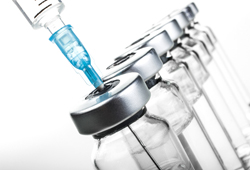 The European Commission recently announced a report on the impact of biosimilar competition on price, volume and market share, based on full-year data from 2016. The report, prepared by QuintilesIMS, analyzed six established therapy areas with biosimilar competition—epoietin (EPO), G-CSF, hGH, anti-TNF, fertility/gonadotropin preparations, and recombinant human insulins—and identified four observations.
The European Commission recently announced a report on the impact of biosimilar competition on price, volume and market share, based on full-year data from 2016. The report, prepared by QuintilesIMS, analyzed six established therapy areas with biosimilar competition—epoietin (EPO), G-CSF, hGH, anti-TNF, fertility/gonadotropin preparations, and recombinant human insulins—and identified four observations.
First, the report showed that biosimilar entry led to reduced average list prices in European countries, not just for the respective reference products, but for the whole product class. This price reduction was not tied to biosimilar market share.
Second, the report found that lowering the price of the referenced product lowered biosimilar market penetration for at least two therapy classes: anti-TNF and hGH.
Third, in therapy classes where more than one biosimilar has launched, the first biosimilar to market usually takes the highest biosimilar market share.
Finally, for most therapy classes, there was a significant increase in product consumption after biosimilar entry, whether or not there was already high usage in that therapy class. The report concluded that biosimilar competition increased patient access to the product class.
The report was first presented in Brussels at the European Commission’s stakeholder conference on May 5, 2017. This report is the latest version of a May 2015 report, which was also updated in 2016.
